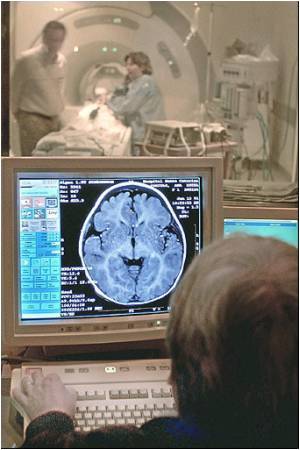Decline in hearing ability may accelerate gray matter atrophy in auditory areas of the brain thereby increasing the listening effort necessary for older people

When a sense (taste, smell, sight, hearing, touch) is altered, the brain reorganizes and adjusts, suggesting a link between hearing ability and brain volume.
"As hearing ability declines with age, interventions such as hearing aids should be considered not only to improve hearing but to preserve the brain," Jonathan Peelle, research associate in the Department of Neurology said.
"People hear differently, and those with even moderate hearing loss may have to work harder to understand complex sentences," Pellee stated.
Researchers measured the relationship of hearing acuity to the brain in a pair of studies, first measuring the brain's response to increasingly complex sentences and then measuring cortical brain volume in auditory cortex.
Older adults (60-77 years of age) with normal hearing for their age were evaluated to determine whether normal variations in hearing ability impacted the structure or function of the network of areas in the brain supporting speech comprehension.
Advertisement
Although the research was conducted among older adults, the findings also have implications for younger adults, including those concerned about listening to music at loud volumes.
Advertisement
The research appears in the latest edition of The Journal of Neuroscience and was funded by the National Institutes of Health.
Source-ANI














